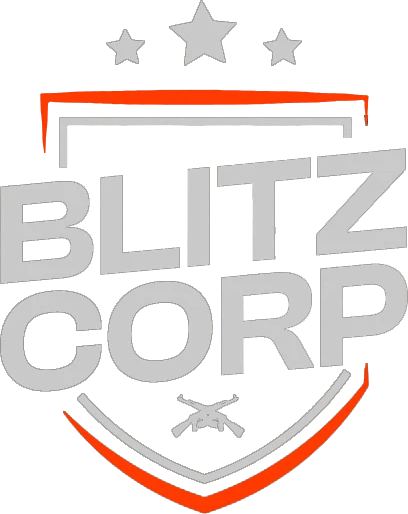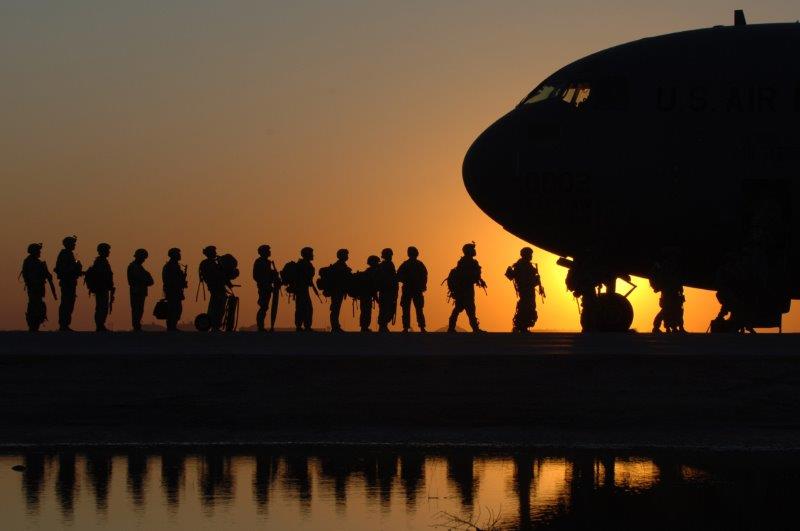The names we are called often carry stories, mysteries, and insights into our lives. This is especially true for historical figures like Napoleon Bonaparte, whose various nicknames over time have puzzled many admirers and students of history alike.
Have you ever wondered how an Emperor can also be a "Little Corporal," or what other monikers he might have collected? These aliases offer windows into his character and the era in which he lived.
So, what was Napoleon's nickname then? One intriguing fact about Napoleon is that despite being known for having a 'Napoleon complex' linked to short stature, recent studies suggest he was actually of average height for his time! Our blog post will explore the maze of Napoleon's nicknames, revealing the layers behind these epithets.
You'll discover how each title came to be and what it signified not just about the man but also society’s view of him.
Ready to march through history? Let's uncover the tales behind Napoleon's famous nicknames together.
Key Takeaways
- Napoleon Bonaparte had many nicknames, each showing a different side of him. "Nabulio" was his childhood name from family and friends.
- Soldiers called him "The Little Corporal" to show they trusted and respected him as their leader.
- His enemies sometimes called him "The Corsican Ogre," painting him as a fearsome ruler in political cartoons and propaganda.
- The title "Man of Destiny" showed people believed he was meant for greatness because of his quick rise to power.
- Nicknames like these played a big role in how others saw Napoleon, boosting his image or making others fear him.
Napoleon Bonaparte Early Nicknames
As a young man rising through the military ranks, Napoleon Bonaparte garnered several nicknames that hinted at his future legacy. These early monikers reflected his heritage, stature, and burgeoning reputation among peers and adversaries alike.

Nabulio
Napoleon Bonaparte, born on the island of Corsica, was affectionately called "Nabulio" in his youth. This nickname came straight from his family and close friends. It shows a personal side to Napoleon that few outside his inner circle knew.
Before he rose to power during the French Revolution or became Emperor of the French, Nabulio was just a boy with big dreams.
His childhood nickname stayed behind as he grew into the man who would command armies and shape Europe. The little boy known as Nabulio took steps towards greatness, earning new titles with each stride; soon enough, people started calling him "The Little Corporal".
Little Corporal
Soldiers first called him "Little Corporal" after a famous battle. They saw his bravery and loved his spirit. This nickname showed their affection and respect for him as a leader. He was not very tall, but he stood out for his big achievements.
Friends used this term of endearment because it made Napoleon one of them, even though he was their general. The name stuck with him through many victories and defeats. After the Battle of Lodi, people saw him as more than just an army officer; they viewed him as a hero.
Moving from the battlefield bond to another quirky nickname..
Father Violet
Napoleon's soldiers secretly called him "Father Violet" for a very clever reason. They thought he would appear in the spring, disappear in the winter, just like wild violets do. This nickname also showed their hope that Napoleon could come back to power after his first defeat.
The name was whispered amongst ranks and shared with smiles. It reflected both affection and belief in Napoleon's ability to bounce back from challenges. Even though he had been exiled to Elba, many saw him as a leader who could still change France's destiny.
John of the Sword
Moving from the unassuming "Father Violet," another of Napoleon's nicknames stands out for its martial flair: "John of the Sword." This alias echoed his military genius and love for battle.
Soldiers and admirers linked this title to his bold strategies and swift victories. It painted a picture of a man who was not just leading armies, but also crafting warfare artistry with every move he made on the European chessboard.
As "John of the Sword," he inspired awe in both allies and enemies. The name underscored his status as a master tactician whose decisions determined the fates of nations. Young cadets admired him, seasoned generals respected him, and history remembers him by this powerful moniker that celebrates his legendary swordsmanship at directing troops.
Other Nicknames During His Reign
During Napoleon Bonaparte's rule, he accumulated a plethora of nicknames, each reflecting a different facet of his complex legacy and contributing to the larger-than-life image that we continue to dissect and discuss today.

Emperor of the French
Napoleon Bonaparte took the title "Emperor of the French" in 1804 after rising through the ranks of the military and gaining power during the French Revolution. He crowned himself, showing he answered to no one but himself.
His reign lasted until 1815, marked by significant reforms in France and many battles across Europe. Napoleon transformed the nation with legal changes, educational improvements, and infrastructure projects.
He led his armies into numerous wars, expanding his empire beyond France's borders. The Battle of Waterloo in 1815 saw his defeat against British forces under the Duke of Wellington.
This loss ended his rule as Emperor, leading to his exile on Saint Helena where he died in 1821. Throughout this time, people knew him as a determined and intelligent leader who shaped much of European history.
The Corsican Ogre
The nickname "The Corsican Ogre" painted Napoleon as a fearsome and monstrous ruler, especially in the eyes of his enemies. It highlighted his birthplace, Corsica, and suggested that he was not only ambitious but also a force to be reckoned with.
British cartoonists like James Gillray loved to portray him this way in their work, making him look greedy and power-hungry. This term helped spread fear among those opposing French expansion under Napoleon's leadership.
His love for military strategy turned many battles in favor of France. Yet it was this same brilliance that made others call him "Man of Destiny," seeing him as almost unstoppable.
Man of Destiny
Napoleon earned the title "Man of Destiny" for his extraordinary rise to power. Many saw his swift climb from a Corsican military officer to Emperor as fate. This nickname captured the sense that he was destined for greatness, and it stuck with him through history.
His belief in his personal star fueled bold strategies and sweeping changes across Europe. People thought Napoleon had a grand future planned out by destiny itself. As they called him "Man of Destiny," they watched him lead the French army into legendary battles and shape nations.
Next up were other names reflecting how soldiers felt about their leader..
The Little Corporal (again)
Napoleon earned the title "The Little Corporal" early in his military career. Soldiers admired his bravery and tactical genius. This term of affection showed their respect for a leader who shared in the hardships of battle.
The nickname stuck with him, even as he rose to mighty power.
Years after being named "The Little Corporal," Napoleon remained close to his troops. He often visited the front lines, boosting morale and leading by example. His presence inspired soldiers and emphasized that he was not just an emperor but a comrade-in-arms as well.
The Importance and Impact of Napoleon's Nicknames
Napoleon's nicknames were far from simple monikers; they held deep significance, influencing both his personal identity and the public's perception of him. These labels played a pivotal role in shaping the narrative of his life, from a young Corsican outsider to an emperor whose name echoed throughout history.

Reflection of his personality and reputation
Napoleon was often called "The Little Corporal," reflecting respect from his soldiers. They saw him as one of their own, though he was their commander. This nickname stuck because it showed his close relationship with the troops and how he led them in battle.
It also hinted at his modest height, but that never stopped him from achieving great things.
His reputation grew strong with names like "Man of Destiny." People believed Napoleon had a special role in history. He made bold choices and won many battles, which led others to see him as almost larger than life.
Nicknames painted both a picture of who Napoleon was and how the world reacted to him.
Propaganda and public perception
Nicknames played a big role in shaping how people saw Napoleon. They were tools for both his fans and his enemies. Friends and supporters often used "Little Corporal" to show affection and respect.
This showed him as a man of the people, close to his soldiers. Enemies had different names for him, like "The Corsican Ogre." They wanted to scare others and make Napoleon seem like a monster.
These labels helped spread ideas about who he was across Europe. Paintings by Jacques-Louis David presented an image of strength and control, adding to his larger-than-life persona.
Stories of his military wins made some see him as the "Man of Destiny." Through such stories and images, many started thinking that Napoleon was unbeatable in battle. This belief became very powerful during times of war and peace talks.
Use of nicknames in political and military strategy
Leaders and generals have long used nicknames to boost morale among their troops. Napoleon was no different. He embraced titles like "The Little Corporal" to seem more approachable to his soldiers.
This helped him gain their loyalty and trust, making them fight harder for him.
Nicknames also shaped public opinion. Calling Napoleon "The Corsican Ogre" made enemies fear him more. It showed he was a powerful force not easily defeated. These names echoed through history books and still shape how we see this historic figure today.
Moving on, let's explore the origins and meanings behind these famous nicknames of Napoleon Bonaparte.
The Origins and Meanings of His Nicknames
Delving into the roots and connotations of Napoleon's monikers reveals layers of his complex legacy, beckoning readers to explore how each epithet encapsulates a distinct facet of the enigmatic ruler's life and times.
| Nickname | Meaning | Origin |
|---|---|---|
| Nabulio | Childhood nickname used by his family and friends | Reflects his Corsican roots and youth before rising to power |
| The Little Corporal | Showed affection and respect from his soldiers | Earned after the Battle of Lodi for his bravery and leadership |
| The Corsican Ogre | Used by British cartoonists to paint him as a fearsome, greedy ruler | Highlighted his birthplace in Corsica to breed fear among his enemies |
| Man of Destiny | Captured the belief that he was fated for greatness due to his swift rise in power | Reflected how his bold strategies shaped European history |
| Emperor of the French | Formal title he claimed after rising in power from the French Revolution | Ruled as emperor from 1804-1815, reforming France through legal and infrastructure changes |
Given by family and friends
Napoleon’s family called him Nabulio when he was young. Friends and soldiers gave him nicknames that showed trust and friendship. One popular name they used was the Little Corporal, which highlighted his bond with his troops.
These names stuck with Napoleon as he climbed ranks in the French military.
His rise to power did not change how people close to him felt. They continued using personal nicknames out of love and respect. The warmth behind these terms contrasted with the more formal titles he would earn later on, such as Emperor of the French or First Consul.
Moving from familial nicknames to regal titles marked Napoleon's journey from a simple Corsican boy to a ruler who shaped Europe’s destiny.
Did You Know: The nickname "Little Corporal" originated after the Battle of Lodi in 1796. Napoleon's brave leadership in the fight earned his soldiers' admiration, and they affectionately named him for his modest height but strong command.
Reflecting camaraderie and respect
Nicknames can show how much people admire and trust a leader. Soldiers in Napoleon's army felt close to him, so they called him "The Little Corporal." This name stuck because it showed their fondness for him.
They saw him as one of their own, not just a far-off boss.
Friends from Napoleon's younger days on the island of Saint Helena gave him a personal nickname, "Nabulio." It was a sign of friendship and respect from his early life. His nicknames often came with stories that made others feel connected to this powerful man.
Reflecting his military and political identity
Napoleon Bonaparte showed his strength as a leader and warrior with each nickname he earned. Friends called him Nabulio as a child, but on the battlefield, soldiers hailed him as the Little Corporal for his bravery and command.
His rise to political power was swift; soon people across Europe knew him as Emperor Napoleon.
He became known for being both feared and respected. To some, he was the Corsican Ogre, hinting at his ruthless tactics in war. Others saw him as a Man of Destiny who shaped history through sheer will.
Each title held a piece of who he was – an iconic figure whose actions left deep marks on both France and the world.
Conclusion: What Was Napoleon's Nickname
Nicknames tell us a lot about who Napoleon was. They show how people saw him and what he did. Friends, enemies, and soldiers gave him many names. These names were part of his power and fame.
Some made fun of him; others showed deep respect. From "Little Corporal" to "Man of Destiny," each nickname has its story. Remember these nicknames to understand the giant figure that was Napoleon Bonaparte.
FAQs
1. What nicknames did people give to Napoleon?
People often called Napoleon "The Little Corporal" and sometimes "Little Boney." These names were used by friends, soldiers, and the French public.
2. Why was Napoleon called "The Little Corporal"?
Napoleon earned the nickname "The Little Corporal" after his leadership at the Battle of Marengo. His soldiers admired his bravery and gave him this affectionate title.
3. Did everyone believe that Napoleon was short?
No, not everyone thought so! The idea that Napoleon was very short is a myth. Historical records like his death certificate estimate that he was about 5 feet 7 inches tall.
4. How did Joséphine de Beauharnais affect Napoleon's life?
Joséphine de Beauharnais played a big role in Napoleons' life as she was his lover and first wife. She supported him through many challenges during their time together.
5. What happened to napoleon after invading Russia in 1812?
After the failed invasion of Russia in 1812, things went downhill for Napoleon with several defeats leading to his exile and eventually, he died on May 5, 1821.
6. Was 'Napoleon complex' named because of him?
Yes! 'Napoleon complex' may go back to how some people saw him; it describes someone who acts boldly or aggressively to make up for their lack of height.
7. How tall was Napoleon really?
Napoleon’s autopsy certificate estimates his height at 5 feet 2 inches when he died.
8. How did Napoleon die?
Napoleon likely died of stomach cancer on 5 May 1821 at the age of 51 while in exile on the island of St. Helena.











